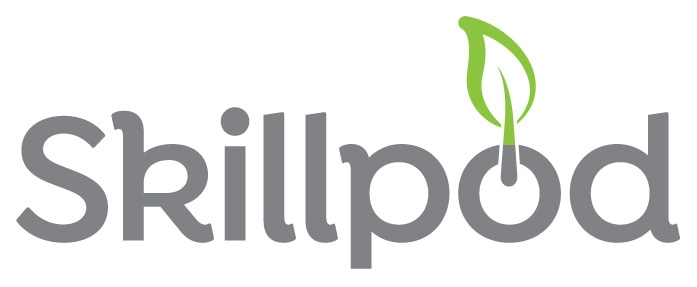A lot has been written exploring what a growth mindset is and the value that it brings to businesses who adopt/embrace it. Let’s take a closer look at how the concept of change and challenging our thinking can shape a growth mindset.
Being comfortable with change
We all want to succeed at life and the reality is it’s very hard to succeed without a growth mindset. A growth mindset is about being comfortable, and perhaps even liking change. It’s about the pursuit of learning opportunities and new ways of understanding and interacting in our environments- both personal or professional. A growth mindset is inviting our assumptions to be challenged on a regular basis. It’s also about being flexible with whatever new direction this challenge takes us in.
What change might look like
Like all ‘living’ things businesses also need to change if they are to grow, let alone succeed. This ‘growth’ can take many forms and doesn’t need to correlate to expansion in operations and sales. Growth can also signify a maturity in the thinking of the business and the change in core values that this brings. It can be reflected in new ways of interacting and communicating. It can be shown in how learning opportunities are perceived and implemented in the business.
So, we get that growth requires change and this requires you to challenge your thinking. But how does this translate in what actually happens, or rather what could happen in a work environment? The following is a run-through of what we think challenging our thinking might look like at work.
1. The importance of trying new things and getting uncomfortable.
Whatever makes you uncomfortable is your biggest opportunity for growth- Bryant McGill
Resistance to change is one of the major barriers to business growth. Although we might like the sound of a growth mindset, we are essentially creatures of habit. The reality of change can be jarring when it actually comes to pass. Staying the same is easy. Change is hard and messy. It requires us to become vulnerable and often unlearn what we already know. It takes up time and resources and requires effort, resilience and nerve. It often makes us feel uncomfortable.
It is however key to moving forward, and trying new things is intrinsic to growth and progress. This is not to suggest that change for its own sake should dominate or that a business should try new things constantly. Rather, a growth mindset requires us to constantly evaluate what we are doing. It means acknowledging what is working for us while simultaneously trying new things when we want to pursue new avenues.
We live in an age of disruption where change is often forced upon us with little or no notice. Businesses that encourage their people to try new things, become more adaptable and are more likely to survive and thrive.
2. The importance of our relationship to mistakes and failure
The road to success is paved with mistakes well handled – Danny Myer
Challenging our thinking requires us to rethink our relationship to mistakes and failure. We all make mistakes all the time – but how often do we see them as a learning opportunity? Instead of letting our mistakes grind us down and limit us, we should see them as a resource for improvement.
Why didn’t this work and what should we do differently next time? What have we learned from this and what needs to change?
We can learn from every mistake we make or every failure we face. The changes that these valuable learning experiences inspire can be both big and small. Businesses which have a healthy learning culture give their people the freedom to make mistakes and encourage them to own them when they make them. They also support them to share the learning with the rest of their team. Sounds good doesn’t it?
3. The importance of open communication channels and two-way flow
It’s safer to find out than to suppose – Mark Twain
Challenging our thinking might also require us to rethink how we communicate in the workplace. Although everyone has a role to play here, people in a leadership position are key in shaping how communication flows through a business. Companies with a growth mindset typically encourage communication to flow freely.
Employees should be encouraged to give feedback and communicate their thoughts in their teams as well as up the line to their manager and other leaders. Opening up communication channels and actually listening to what comes through them encourages people to speak their minds. It also increases levels of trust and increases the capacity for collaborative teamwork and innovation.
4. The importance of trust and constructive feedback
Feedback is the breakfast of champions – Ken Blanchard
As we know, a growth mindset requires us to be comfortable with our assumptions being challenged. Feedback plays a key role here, and a learning culture requires the presence of feedback in some form. For feedback to have any value there needs to be a degree of trust between the person giving it and the one receiving it. When innovation is encouraged, communication is open and mistakes are seen as opportunities, trust is automatically built up and feedback becomes more constructive by design.
Challenging our thinking in this area might involve a shift in company culture and values. It could involve framing feedback as positive and encouraging more constructive feedback within teams. It might involve the introduction of more mentoring. It may well require businesses to radically rethink how feedback is given (both formally and informally), how often, by whom and to what end.
5. The importance of being accessible and available
The best way to lead people into the future is to connect deeply with them in the present – James Kouzes and Barry Posner
For business growth to occur, there needs to be good connection between the key parts – particularly between people.
What might challenging your thinking look like in this area?
Leadership qualities are pivotal here, with people needing to be accessible and available to their team. While similar, being accessible and being available actually have different meanings in a business context. Accessibility is a function of personality, with accessible people driving open, honest communication, seeking feedback and providing good coaching and mentoring.
These things are always important but particularly so nowadays when remote work practices are becoming more commonplace. Availability is also important however, and actually rests on the principle of time-management. Available people let their team know exactly when and how they can be reached, have frequent and regular catch ups and make good use of technology.
Time isn’t the main thing. It’s the only thing – Miles Davis
The capacity to see things differently
Love challenges, be intrigued by mistakes, enjoy effort and keep on learning – Carol Dwek
Challenging your thinking can take many forms and may require a rethink of how things are done across many facets of a business, including company culture, leadership, and communication.
Having a healthy learning culture is a big part of a growth mindset. Typical aspects of a learning culture, including the desire to acquire new knowledge and skills and share this with other people has wide ranging benefits for both the individual and the wider business. A learning culture puts people at the heart of the business and has been shown to improve levels of motivation and engagement.
When people are given the opportunity to grow professionally, it increases their sense of connection and loyalty to the business. The upshot is that these people are much more likely to stay put for longer and invest their time and effort in the future success of the business that has nurtured this growth.
Great e-learning as a great pathway to growth
Short, relevant and practical online learning can help you and your people get started on this path to growth. At Skillpod we understand the importance of having a learning culture. We also know how to make engaging, relevant and accessible e-learning to help people and businesses grow.
Check out our Skillpod e-learning library for some inspiration and talk to one of our friendly team about how we can help you and your people grow through good learning opportunities.


